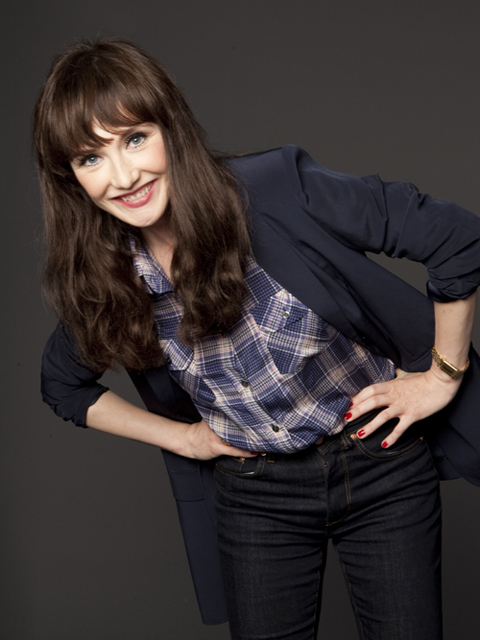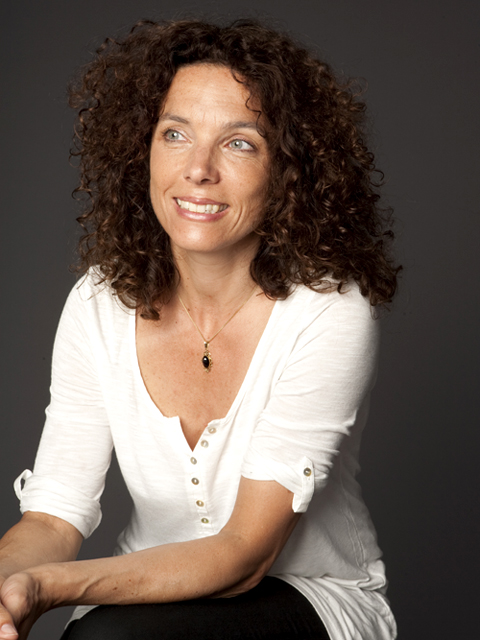Black Butterflies, a flawless Dutch biopic shot in South Africa, introduces audiences to the Afrikaner poet Ingrid Jonker, a wild, exciting, freedom-seeking woman who became one of South Africa's greatest poets. Covering the five most audacious years in her young life, the story takes place in a beach town near Capetown in the early 1960s. Apartheid was in full swing and Jonker (Yawn-ker) vehemently opposed it. The starring role of Jonker is played with great sensitivity by Dutch actress Carice van Houten. On Thursday, April 28, she won Tribeca Film Festival's 2011 Best Actress in a Narrative Feature Film award in the World Narrative category. The jury commented: "There are a million colors in this complicated performance. We award this honor for bravery and fragility, and for showing tremendous range and strength throughout."
 Carice Van Houten / Photo by Leslie Hassler
Carice Van Houten / Photo by Leslie Hassler
Oscar-nominated Dutch director Paula van der Oest, who has written or directed at least 20 films, made Jonker's poetry a vivid part of the film. We see it scribbled on every wall of the room she lived and worked in when she lived with her father. "Whenever we got stuck, we'd open Jonker's book of poetry and read until we found what we needed to solve our problem," she says. As to the film's name van der Oest says, "it came from one of her poems--'For the sun, which I now cover with black butterflies.' This line is thought to be a foreshadowing of her death."
 Director Paula van der Oest / Photo by Leslie Hassler
Director Paula van der Oest / Photo by Leslie Hassler
Van der Oest inserts brief snippets from the poet's childhood that yield clues to her eventual outcome as a troubled spirit seeking love from men, lots of them. But two men stand out in this motherless girl's life. One was her stern, unyielding father, whom she met for the first time at about age 11. He took her and her younger sister in after their impoverished grandmother died. Later, as the government's pro-Apartheid Minister of Censorship, he refused to allow publication of her first book, a crushing blow to her psyche. Played by the inimitable Dutch actor Rutger Hauer (Blade Runner), known for his intense method acting in indie, cult, mainstream cinema and TV, the father is disturbingly cold and would steal the life out of any young girl.
The other influential male was her primary lover, Jack Cope, an older, well-known South African writer. While he was fascinated by and in love with Ingrid, he couldn't live with her compulsions, though he tried. Irish stage and screen actor Liam Cunningham (The Wind That Shakes the Barley) is perfect as Cope, so captivated by this younger gypsy type that he is nearly intimidated before managing to right himself.
After the poet's untimely death, it was Cope who gathered her literary estate into the Ingrid Jonker Trust where his own books and journals joined hers after his death in 1991. Award-winning screenwriter Gregg Latter credits Cope's copious diaries for the story he was able to tell. "Jack wrote a page a day. Here was a man trying to fathom this woman out. I couldn't have had a better insight into her (Ingrid) if she had told me about herself."
When asked how many films she's made, van Houten (34 going on 17), dismisses any attempt to be accurate with a wave--"Oh so many, maybe 20." Two of her better known films are Valkyrie and Black Book. In Black Butterflies, she is an impetuous Ingrid, flaunting her freedom by appearing nearly everywhere barefoot and in short shorts, hard-core flirting with men even within eyesight of Cope. "We knew she did these things, but we had to figure out why," says van Houten. "So Paula (the director) and I talked about her motivation a lot. I have to talk about my roles until I completely understand them. Only then can I act my roles intuitively. We decided that given Ingrid's personality, she flirted innocently, like a child, and not to hurt her lover or to make him jealous."
There's a fourth character to watch - the ocean. Scenes involving the ocean appear throughout, starting and ending the film like bookends. Van der Oest says, "The film starts with Ingrid swimming out past where the current could push her back to shore, then panicking, needing to be rescued. That, to the film's writer, signified Ingrid always going against the current."
Jonker's gained posthumous national recognition in May 1994, when Nelson Mandela singled her out in a nationally televised speech. The occasion was the opening of the first freely-elected South African Parliament, ending Apartheid and putting Black Africans onto that governing body. Mandela read one of Yonker's most important anti-Apartheid poems, calling her "an Afrikaner woman who transcended... and became a South African and an African," thus spiritually accepting her into the newly liberated Black culture. Van der Oest adds, "By choosing to honor Ingrid Jonker on that most important occasion, he was demonstrating that the two races could honor each other and live together."